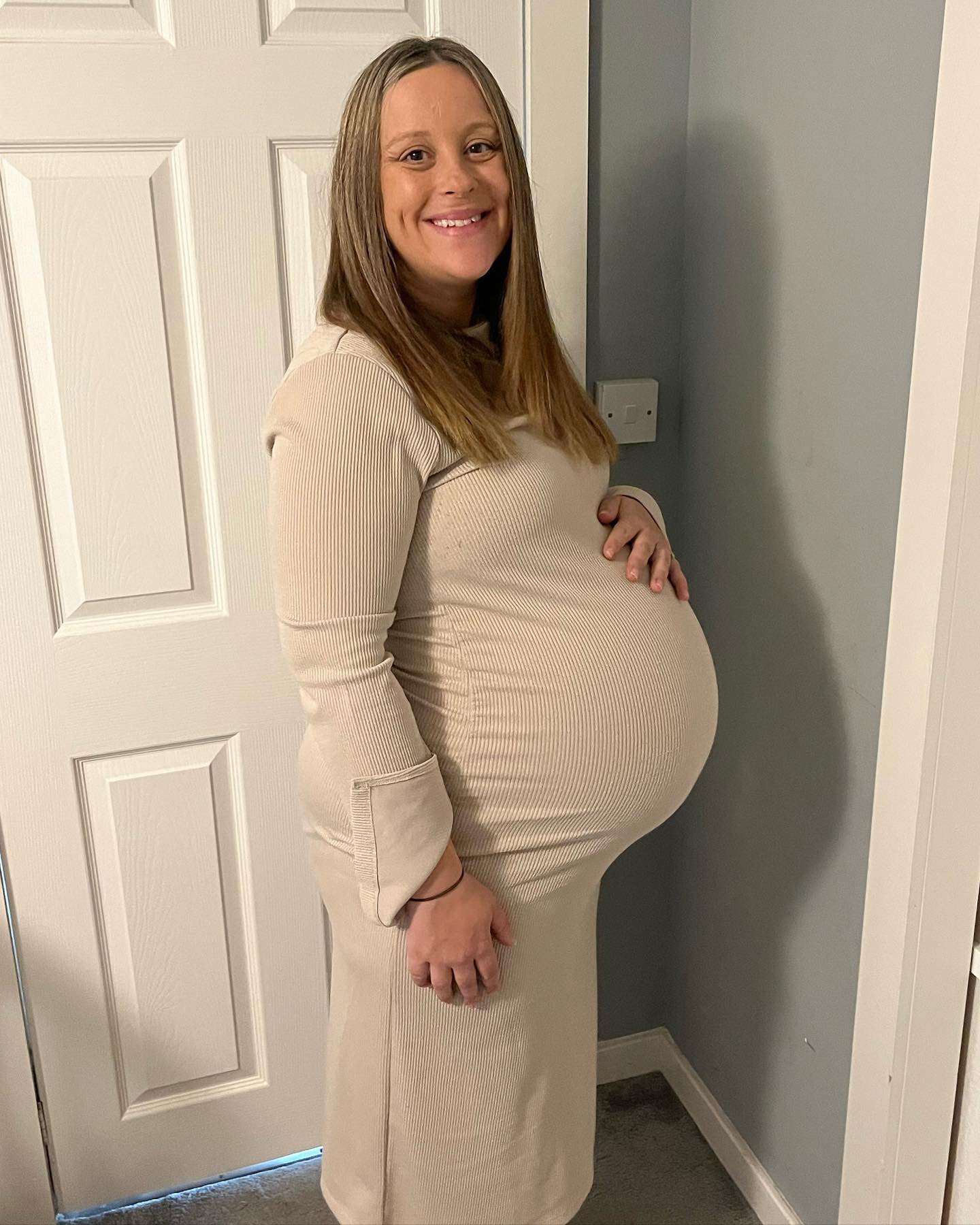Why due dates are bull***t!
Lets talk about due dates!
And what happens if you go past yours? Be patient and baby will come in their own time. Easy to say isn’t it? Really really not that easy to do though when you pass that elusive ‘due date’. Especially when all the messages start coming through from well meaning friends and family members.
‘Any news?’
‘Any sign of baby?’
‘Is he/she here yet?’
‘How long will they let you go over?’
‘When will you be induced?’
I get it I really do, I’ve went ‘overdue’ with all four of my babies and right now as I write this today is my own ‘due date’ and I fully expect to be still pregnant next week and probably beyond. Although of course anything could happen. The pressure when you get close to that date is real, as is the anxiety of going to bed every night and waking the next morning to face another day. I have complete trust in my body and since my other babies have come a little past the ‘due date’ I have mentally prepared for the same again, but still I’m human and I do find it tough going. So I honestly can totally relate.
Then we have offers of sweeps and inductions and often that choice can feel overwhelming. And sometimes it doesn’t really feel like a choice at all but something that is just the normal next step. Actually, induction of labour for ‘post dates’ pregnancy is probably the most common intervention you might be offered in your pregnancy, so its a huge decision and why its really helpful to understand a bit more about the ‘due date’ and why it isn’t always the most reliable way of deciding when your baby should be born. I have a blog post for another day all about Induction of Labour, but for now lets explore the due date a little more.
Did you know, only 4% of babies are actually born on their ‘due date’? So although as soon as you’ve had that first scan its the date you have firmly in your mind, its statistically really unlikely your baby will be born on that date. Most babies come between 37-42 weeks, some come earlier and some later.
Did you also know, due date is based on a theory from the 1700’s? The idea that pregnancy is 40 weeks or 280 days in duration is attributed to the German obstetrician Franz Naegele in the 1700’s. His rule adds nine months and seven days to the first day of the last menstrual period. The idea that this rule can apply to every pregnant female is just not realistic. Many women (and healthcare providers) regard this 40 week date as a deadline, which if crossed, may then place the baby in danger.
Your placenta does not have an expiry date! There is no research that shows if or when placentas stop working in healthy low risk women. Even so, this is one of the most common reasons given for women to be induced after 40 weeks. Inductions and sweeps are often offered to get things moving due to fear of the placenta reaching an ‘expiry date’ and no longer working. Both of these things with their own risks that must be taken into consideration, but often these are not discussed.
Then there is stillbirth - its something that I hate talking about because nobody wants to let their mind go there, but it is really important to consider this because it is one of the main reasons for intervention after the ‘due date’ has passed. The research does show a small but statistically significant increase of still birth past 40 weeks. Often it is communicated to women that their risk of stillbirth more than doubles, which technically is true, but when you look at the actual % it paints a bit of a different picture. The numbers vary slightly across different studies but it is generally accepted that the risk of stillbirth goes from around 0.13% to 0.3%. There is also some evidence to show that the stillbirth rate actually may decrease after 42 weeks. You need to consider what these risks mean to you - some may feel like that is a tiny risk still and they are willing to wait it out, for others that increase is too much of a risk and will want to intervene. There’s no right or wrong, just what is right for you.
So what happens when you pass your due date? In NHS Lothian (and similar in other trusts) you will normally be offered a sweep at 40 weeks to get things moving - it is important to know that a sweep is a form of induction and to consider the benefits, risks and alternatives. Its also important to realise you have a choice and do not have to accept this if you don’t want to. I will talk about this more in my next post. You will also then be offered another at 41 weeks, if you are still pregnant. And then you will be offered a date to be induced - Induction of Labour around 40+10 days. Again, it is important to consider the benefits, risks and alternatives. The most important thing is that you have all of the information to make a decision that feels right for you and your individual circumstances. It may be that you are happy to accept these interventions, or it may be that you’re not.
What if I just want to wait? If you you don’t want to be induced at 10 days after your due date, you can decline this and you will be offered monitoring in the hospital every couple of days until you have your baby. This can provide the reassurance some people need to allow them to continue in their pregnancy. You might want to set a ‘cut off’ date where you will reconsider your position again and then decide what to do, some people find this useful others feel it puts more pressure on them to have their baby by a certain date. Alternatively, you can just choose to wait for however long you are happy to do so, you don’t have to do anything to help bring on labour, you don’t have to accept any medical intervention and you don’t need to have a deadline for this - literally not one single person on earth has ever been pregnant forever so you absolutely will go into labour at some point. Again, it is all down to you and what is important to you and what you feel comfortable with.
Where can I get more information? A great starting point is Dr Sara Wickam’s book ‘In Your Own Time’ - I can’t recommend this highly enough for anyone who might be faced with conversations about post dates and induction methods. As with all of her work she presents the evidence, statistics and studies in a really easy to understand and neutral way to help you make your own decisions.
And of course we will cover all of these things in my courses, both 121 and group, and I am always here to chat to you. I will never tell you what the answer is for you and your individual circumstances but I will help you to find those answers from yourself - both in terms of the research but also just digging a little deeper into what your intuition is telling you and what you truly want.
I intend to share in my next blog post about the different induction methods so keep an eye out.
But who knows….. maybe I’ll be sharing my birth story instead?
Mandy x



